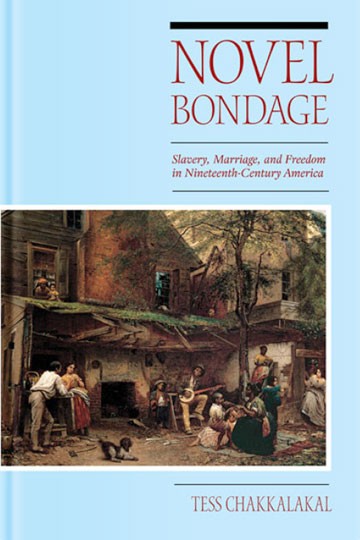
- Publisher: University of Illinois Press
- Available in: Cloth, Paperback
- ISBN: 978-0-252-03633-0
- Published: May 1, 2011
Reworking classic literary texts to explore the unconventional union of slave-marriage
Filling a long-standing gap in our knowledge about slave-marriage, Novel Bondage unravels the interconnections between marriage, slavery, and freedom through renewed readings of canonical nineteenth-century novels and short stories by black and white authors. Tess Chakkalakal expertly mines antislavery and post–Civil War fiction to extract literary representations of slave-marriage, revealing how these texts and their public responses took aim not only at the horrors of slavery but also at the legal conventions of marriage.
Situating close readings of fiction alongside archival material concerning the actual marriages of authors such as Lydia Maria Child, Harriet Beecher Stowe, William Wells Brown, and Frank J. Webb, Chakkalakal examines how these early novels established literary conventions for describing the domestic lives of American slaves in describing their aspirations for personal and civic freedom. Exploring this theme in post–Civil War works by Frances E. W. Harper and Charles Chesnutt, she further reveals how the slave-marriage plot served as a fictional model for reforming marriage laws.
As nonlegal unions, slave-marriages departed in crucial ways from the prevailing definition of marriage, and Chakkalakal reveals how these highly unconventional unions constituted an aesthetic and affective bond that challenged the legal definition of marriage in nineteenth-century America. Novel Bondage invites readers to rethink the “marital work” of nineteenth-century fiction and the historical role it played in shaping our understanding of the literary and political meaning of marriage, then and now.